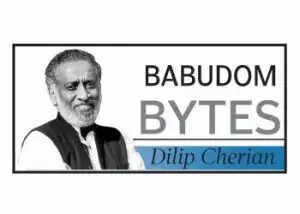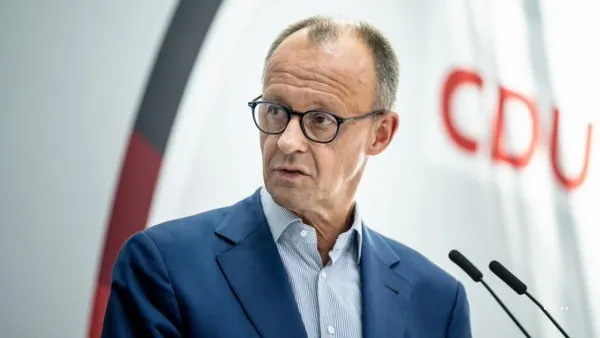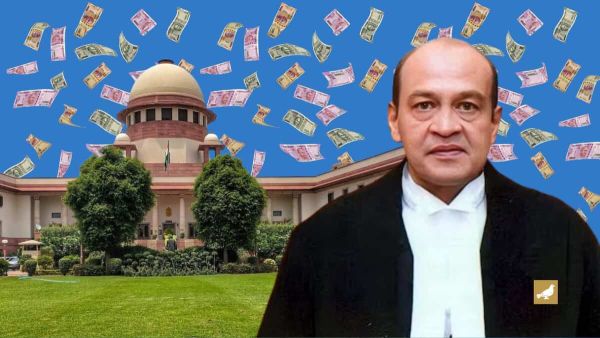
 The Alarming Reality of Digital Security Breaches
The Alarming Reality of Digital Security Breaches
If your password remains as simple as '1234' and you believe a luxury hotel room is a secure environment, you might not be prepared for the digital era, much less for high-ranking positions.
The staggering number of individuals reportedly ensnared in this scandal is shocking, as is the ease with which it occurred. Allegedly, over 72 prominent figures, including IAS and IPS officers and various ministers, fell victim to charm and found themselves recorded by hidden cameras in hotel rooms.
The women involved were described as young and attractive, and the hotels were equipped with surveillance. The aftermath? Blackmail, suicide attempts, and widespread panic. Some officials are said to have paid up to ₹3 crore to maintain silence, but with a woman from Thane arrested and whispers reaching the desks of the Chief Minister and Opposition leader, silence may no longer be an option. Both CM Devendra Fadnavis and Opposition Leader Nana Patole have spoken out, but this scandal demands more than mere soundbites.
This situation transcends personal misconduct; it highlights vulnerabilities at the highest levels of governance. Officials with access to sensitive data were not only emotionally manipulated but also fell into basic operational traps. This poses a national security issue, not just a moral one.
Equally concerning is the lack of transparency. No official has come forward, and the silence is both alarming and perilous. If public servants can be compromised so easily while hiding behind their ranks and protocols, what else might be quietly concealed?
Let’s bypass the moral outrage for now. It’s crucial for governments to prioritize internal security and digital literacy. Not every scandal should have to go viral before action is taken.
The Concern of Vacant Leadership in PSU Boardrooms
For a nation aspiring for trillion-dollar ambitions, it’s surprising how comfortable we are with running essential institutions with incomplete leadership.
Take PSU banks, for instance. Currently, there are over 70 vacancies at the board level across 12 public sector banks, including positions for Managing Directors and Executive Directors. This represents a governance issue rather than just a human resources one, with real consequences for risk management, credit flow, and strategic decisions.
The economy suffers when institutions like the Union Bank of India lack a CEO for extended periods.
This issue extends beyond banks. Numerous critical leadership roles remain unfilled in Central Public Sector Enterprises (CPSEs) across various sectors, including energy (NTPC, IOCL) and infrastructure (SAIL, BHEL, IRCON). While advertisements have been published and selection panels formed, the process feels more like a marathon than a sprint from vacancy to appointment.
These roles are not merely symbolic; they oversee multi-crore projects, employment, and essential national resources, serving as the backbone of India’s growth. The absence of top-level leadership can lead to costly delays and missed opportunities in sectors like mining, power, and defense manufacturing.
While the government claims to be 'in the process,' it’s time to shift from process to results. Our PSUs deserve a fully functional leadership team.
Chandigarh Appoints a Steady Leader
After months of instability in the top police position, Chandigarh has finally appointed a full-time Director General of Police (DGP).
This is not just any officer; Sagar Preet Hooda, a 1997-batch IPS officer from the AGMUT cadre, takes on this role during a time when Chandigarh Police needs more than just stability. With recent turmoil, including an SIT investigation into an alleged assault involving Punjab Police, Hooda’s leadership is timely.
What makes this appointment noteworthy is not just the end of a prolonged vacancy but the caliber of the officer. A Harvard Edward S. Mason Fellow with experience at Duke and LSE, and a sociology PhD from Panjab University, Hooda embodies a rare blend of practical experience and academic knowledge. Currently leading the Intelligence Division of Delhi Police, he is well-acquainted with high-pressure roles.
The hope is that Hooda’s local ties and policy expertise will enhance institutional morale, improve policing, and foster responsive leadership. Given Chandigarh's unique governance structure and inter-state sensitivities, this is no easy task.
While acting DGPs may keep operations running, true leadership involves course correction and long-term vision. Hooda’s appointment could signify a pivotal change—if he is granted the autonomy and time to lead effectively.
-
Kerala Govt To Take Over Administration Of Aided School After 13-Year-Old Student Dies Of Electrocution; Manager To Be Dismissed

-
Two Injured After US Passenger Jet Forced To Descend To Avoid Midair Collision

-
'Time Has Come To End War In Gaza': E3 Leaders Urge For Immediate Ceasefire, Offer Support For Lasting Peace, Security

-
Thailand-Cambodia Border Clashes: Indian Embassy Issues Travel Advisory For Citizens Amid Rising

-
Justice Yashwant Varma cash-haul row: SC to hear on Monday twin petitions
